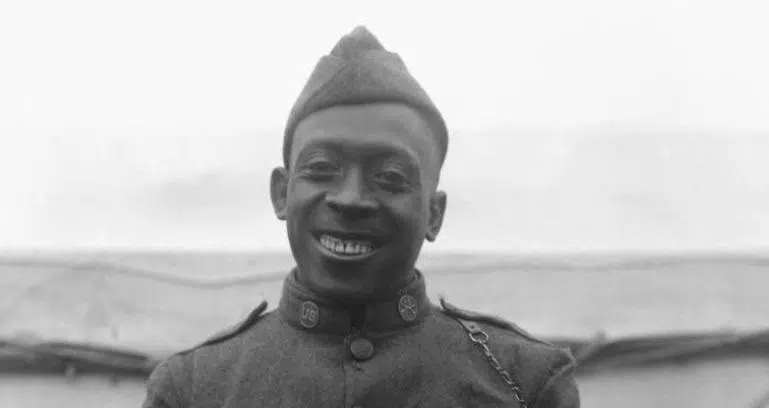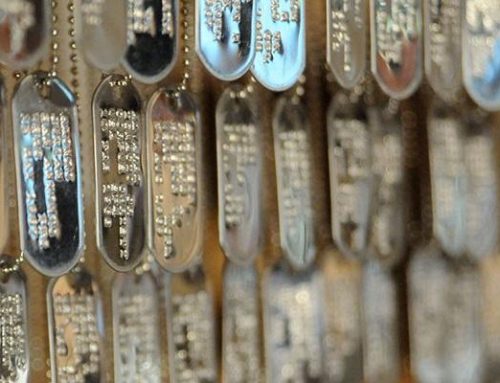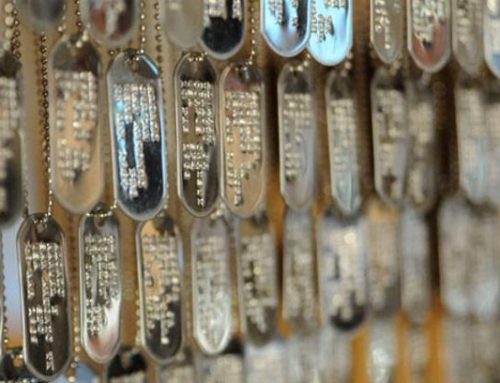Sgt. Henry Johnson – An Extraordinary World War I Hero
In recognition of Black History Month in February of each year, the Museum of the American G.I. is honoring the large percentage of the millions of American soldiers who fought with the Allies during World War I and in particular Sgt. William Henry Johnson.
Although some never actually made it into battles and instead were given other stateside duties, others were assigned to and fought with the French Allies wearing French uniforms.
Wearing that uniform, Pvt. Henry Johnson showed true heroism and dedication to America and the allies, becoming one of the first and most extraordinary African-American heroes of World War I.
Johnson Joins the Fight During WWI
Pvt. Henry Johnson, a member of the first all-black American infantry units called the “Harlem Hellfighters” that changed the public view of African-American soldiers, spent a year as part of the 369th Infantry of the New York National Guard.
The brigade, which was shipped to France during World War I, was eventually assigned to assist the 185th Infantry Brigade and then the 93rd Infantry Division.
Mostly French and some African-American soldiers, the 93rd Infantry Division would go on to defend a bridge over the Aisne river and push back German troops, thus preventing their invasion of France at that bridge.
Heroic Actions And Military Honors
During the battle that took place on May 15, 1918 in the Argonne Forest at the bridge over the Aisne river, Pvt. Johnson went to extreme measures to protect his unit, rescue an injured soldier, and defend the crossing in a courageous effort.
After grenades failed to stop the approaching enemy forces, he single-handedly used the butt of his rifle, his bolo knife, and even his hands, killing 4 German soldiers and wounding many others as well as rescuing one of his own unit members from being captured.
Through it all, Pvt. Johnson sustained 21 wounds including being shot numerous times as the unit fought off the Germans in a battle that killed many soldiers in the unit.
Yet they did succeed and in recognition of that important day when the 93rd and its many African-American soldiers held off the Germans, Johnson was the first U.S. solider of World War I to be awarded the Croix de Guerre, France’s highest military award for valor.
Post World War I
Although Johnson did return from France to America as a war hero and rise to the rank of Sergeant in the Army, life after the war was short and sad for him.
Suffering from ongoing issues due to the many war injuries he had sustained and lacking any military benefits for those injuries, Johnson was unable to hold a job and fell into poverty.
Worse yet, his military discharge paperwork somehow did not contain any record of the numerous injuries he had suffered while serving his country and the allies, so neither aid nor recognition was available to him.
Sgt. William Henry Johnson died a little more than a decade after returning from the western front of World War I, a mostly forgotten war hero who was buried at Arlington National Cemetery in Virginia after his passing on July 1, 1929.
Posthumous Recognition
Although it was posthumously done, Sgt. Henry Johnson finally received the recognition he deserved as a war hero from World War I.
In 1996, Johnson was posthumously awarded the Purple Heart by President Bill Clinton, something that should have happened in 1918 had his discharge paperwork noted his many war injuries.
Yet many thought he should have been awarded our nation’s highest reward, the Medal of Honor, for courageous military action which had been denied due to a lack of military documentation – and research continued.
The turning point to this effort came when documentation was found of Sgt. Johnson’s important accomplishments during his time on the western front and the critical role he played in defending the bridge over the Aisne River.
In addition, documents listing Johnson’s chain of command were found and in particular, an actual memo written by Army Commander in Chief Gen. John J. Pershing which confirmed that he was definitely an American soldier in spite of the French uniform he had worn and that his infantry unit had been assigned to work under the command of the French.
General Pershing’s words stated that Pvt. Johnson’s unit “first attacked continued fighting after receiving wounds, and despite of use of grenades by superior force, and should be given credit for preventing by their bravery the taking prisoner of our men.”
With clarification through these historical documents, Johnson’s important heroism and contribution to the war was finally recognized and a Medal of Honor was posthumously awarded on June 2, 2015 at a ceremony in which President Obama stated that “the least we can do is to say, ‘We know who you are, we know what you did for us. We are forever grateful.’”



